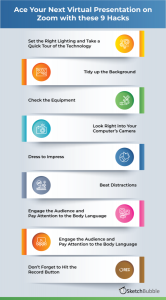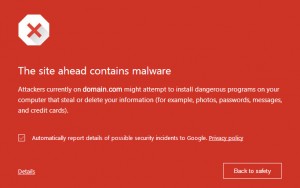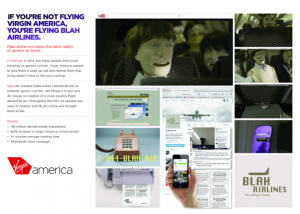
Bidding on keywords is a bit different than heading to a cattle-auction, listening to the auctioneer rattle off words and numbers at an alarming speed and raising a paddle to signal what you want.
It’s way more complex, but probably smells better (we are talking animals here).
Chances are you’re using Google AdWords. Man, it has a lot of settings that make keyword bidding seem overwhelming!
Well, I’m here to give you the rundown, the 411, the inside scoop, on some bidding strategies and when to use them.
Set Goals
First, figure out the goals of your campaign! What do you want it to do? Send traffic to your site? Increase brand awareness? Generate conversions? Decide why you’re advertising in the first place, and we can move on from there.
What your campaign’s goal is will determine what kind of keywords you’re using. If you’re targeting people further down in the sales funnel, long-tail keywords are your friend. But if the goal is to get as many impressions as possible, you’ll want to try all different kinds of keywords.
Then you have to think about pricing models. If you’re trying to generate traffic, CPC (cost per click) is for you, since you’ll only pay when someone clicks through. If increasing brand awareness is what you want, CPI (cost per impression) is the way to go, so you pay whenever someone sees your ad. And if your main goal is conversions, then CPA (cost per acquisition) will get you there. You pay when someone converts.
Let’s focus on CPC, since we’re talking PPC:
Automatic Vs. Manual
When it comes to CPC bidding, you can either bid manually or automatically:
Automatic
Automatic is simple. You just set a daily budget, and AdWords will do the rest. This is best if you’re on a strict budget or don’t have the time to closely watch your campaigns all day. You set what you want to pay, but don’t have to do as much work.
You can also set a bid limit, which makes sure you won’t exceed that set CPC. This way, you know you’ll never pay more than you’re willing to.
On the downside, automatic bidding doesn’t allow you to keep a consistent ad position or time of day. You also can’t bid more or less on specific terms. If these features are important to you, don’t use automatic bidding.
Here are some useful features you get with automatic:
- Bid optimization: With automatic bidding on, things don’t just run at random, or robotically. AdWords will adjust your bids to ensure that you get the most clicks and make the most of your budget. This may be helpful if you’re not yet a pro at optimization.
- The efficiency factor: Campaign optimization can be its own full-time job. If you’re managing a bunch of huge accounts, automatic bidding won’t do everything for you. But it will save you some time to focus on things you can’t (or really, really shouldn’t) automate.
Manual
Manual bidding allows you to fine tune your bids more. You can set different bids for different ad groups and individual keywords. If a keyword is performing well, manual bidding lets you bid more for it. Good idea, since you know the investment will get results.
With manual bidding, you decide the most that you’re willing to pay. But with automatic, AdWords calculates that for you based on your budget.
A drawback of this feature is that the costs will vary day-to-day. One day you might pay the max bid and the next you might not spend enough to meet a goal. It’ll fluctuate.
You also may have to bid more to pay less. It’s common to set a maximum bid for a term, but the “auction” doesn’t actually run that high. If you decide that your budget is $ 4 for the word “oysters”, you may still need to bid $ 8 to reach that.
You also run the risk of having to pay the highest bid at the end of the day, when you weren’t expecting to. In cases like these, it’s easier to use automatic because of the budget optimizer.
But manual bidding allows you to customize a couple features that automatic bidding doesn’t:
- Position preference: This helps you change your bid limits to get your ad to appear in certain positions. If there’s a particular position or sweet spot that you know you gets a lot of traffic, you’ll want to take advantage of this tactic.
- Ad scheduling: Turn your campaign on and off throughout the day. Say there’s a specific time of day or week that has the masses flooding to search for your keywords. Use ad scheduling to make the most of it by scheduling your campaign or increasing your bids around those times.
So How Do You Know When To Lower or Raise Your Bids?
Automatic bidding does this for you, but you also lose control over changing bids on specific terms and ad groups. That’s why some prefer keeping control by using manual.
Figuring out when to raise or lower your bids can take a ton of time, which is why many people turn to automatic bidding. But then you run the risk of ‘setting and forgetting,’ and paying for it later.
Basically, you want to bid more on high-performing keywords. Then you can increase impressions, clicks, and conversions. Lower bids on terms that aren’t performing as well. That way, your campaign is focused on the terms that will help you meet your marketing goals.
Wordstream has an awesome tool called Optimize Keywords Bids. Try it. It identifies these trends, and then makes suggestions for when to raise and lower bids. The best part is that it’s only a suggestion, where automatic bidding will raise and lower your bids without asking you.
When raising or lowering a bid, you want to be sure that you can afford it! Check your ROI to make sure that you can still meet your goal once you’ve made adjustments to your bid.
Tip: Watch out for keywords that bring in lots of search volume, but few conversions. Raising your bid won’t help you gain conversions, it’ll just cost you money!
Effects of Quality Score
Right off the bat, you’re going to want your ads to have a high Quality Score (anything over 5). And if it’s not high, you’ll want to improve it. It can really affect your CPC.
Your Quality Score is how relevant your ad and keywords are, mixed with user experience. (Meaning, are people clicking on your ad and finding it helpful?).
Cool things a high QS can get you:
- Lower costs per click (CPC)
- Better ad rank
- Increased market share
- Lower CPA
You Got This, Cowboy
I know it seems like a lot to wrangle. But as long as you know your goals, and how to break down your bidding process, Google AdWords isn’t nearly as complicated as it seems.
Use these strategies and you’ll be able to walk into the cattle-auction and wave your paddle around with the rest of the pros. Or, uh, something like that.
I’ve got three dollars from the PPC gentleman in the back. Now, four? Will ya give me four? Four? Going once, going twice, sold!
Digital & Social Articles on Business 2 Community
(345)
Report Post







